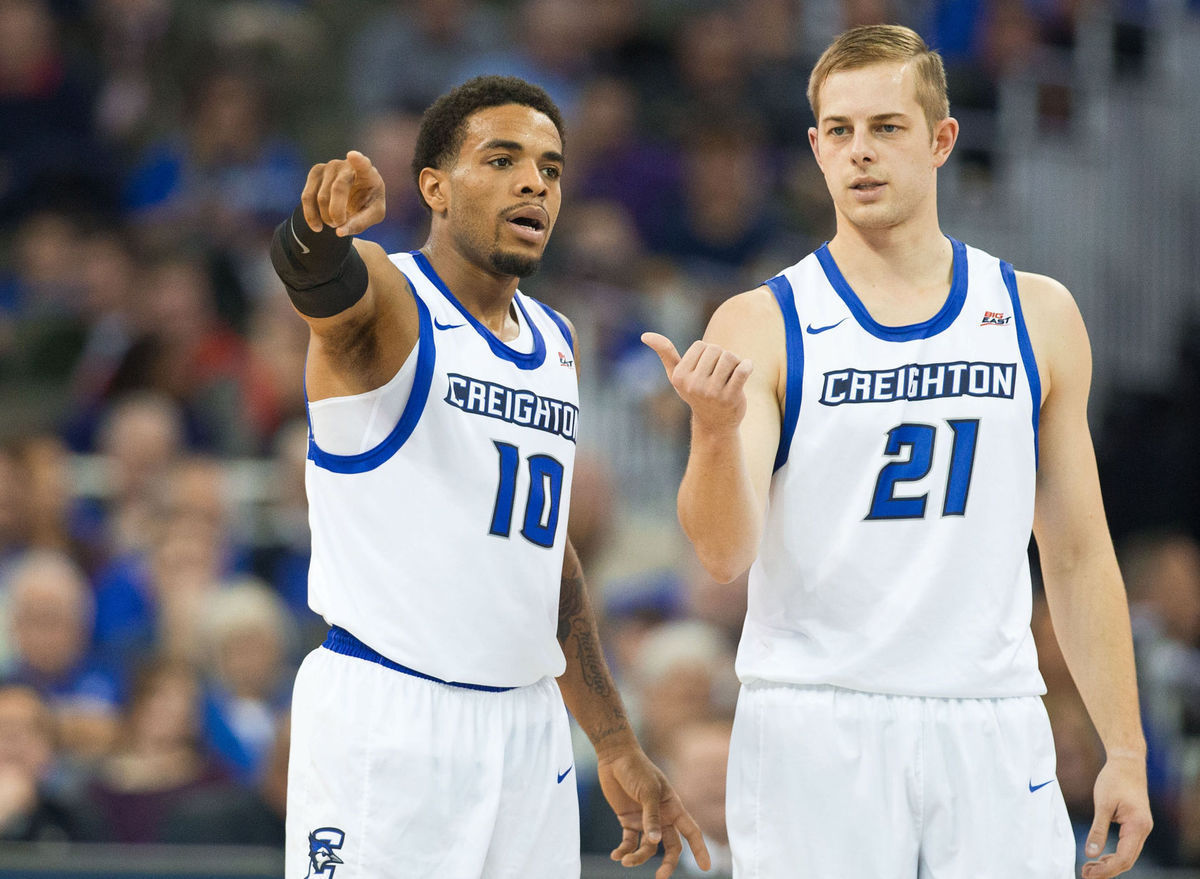Projecting the Effect of Maurice Watson’s Injury on Creighton’s Offense
Posted by Eugene Rapay on January 19th, 2017After suffering an apparent knee injury in Creighton’s Monday afternoon game against Xavier, Maurice Watson, Jr. has been dealt a crushing blow. An MRI later revealed that the senior point guard has a torn left ACL, preemptively ending both his season and career in one cruel swoop. Creighton is not even halfway through Big East play, but now the Bluejays will have to figure out a solution for moving on without Watson’s on-court leadership and skill set. These are big shoes to fill. According to KenPom, college basketball’s assist leader (8.5 APG) paced the team in minutes and was used in over 28 percent of his team’s possessions. Greg McDermott‘s team isn’t completely doomed without him, but he was one of the primary catalysts in helping the program reach its highest-ever ranking in the national polls.

With Maurice Watson Jr. now out with an ACL injury, the Bluejays have turned to Isaiah Zierden to run the point. (Chris Machian/The World-Herald)
The good news in Omaha is that Creighton has other weapons. Kansas State transfer Marcus Foster (18.1 PPG, 49.3% FG) has completely reinvented himself as a scoring threat in his first year in the Big East, posting career-high numbers in shooting (55.6% eFG) and taking care of the ball (11.5% TO rate). Then there’s Justin Patton (13.8 PPG, 72.7 FG%), the freshman center who has already exceeded everyone’s expectations with his astronomical conversion rate and corresponding ability around the basket. While Creighton still has its top two offensive weapons, the new facilitator working in place of Watson will make the Bluejays’ offense look very different.
Isaiah Zierden took over at the point guard position after Watson went down against Xavier. The senior knows McDermott’s offensive system well, but he won’t be able to do some of the things Watson did. For starters, Zierden has mainly been featured off the ball during his time at Creighton, taking 76.2 percent of his shots from three-point range—a stark contrast from Watson’s style of attacking the basket. The tradeoff here is that Zierden isn’t very capable in creating his own shot off the dribble in the same way Watson could. He is, however, a much better three-point shooter (39.0 percent career; 46.5 percent this season) than his predecessor (34.3 percent career). If McDermott pumps the brakes on a Watson-led uptempo offense that typically released a shot in the first 15 seconds, there may be more opportunities for Zierden to get open in the Bluejays’ half-court sets.
Watson excelled in attacking the basket in transition, leading Creighton to the third-highest transition rate (33.7%) in Division I basketball, according to Hoop-Math.com. That’s bound to drop over time as the Bluejays without Watson simply won’t be as deadly on the run, meaning they’ll have to manage by making their possessions count in the half-court. The prolific pick-and-rolls that have been so effective involving Watson and Patton will necessarily change too, as opponents can lay off a driving Zierden to stay home on a cutting Patton. As a result, there will be much more ball movement and patience exhibited in the Creighton offense, not the same run-and-gun show that the Bluejays have used so far.
How well the seventh-most efficient offense in college basketball will run without its floor leader remains to be seen, but it is reasonable to expect a difference in the Bluejays’ tempo and a renewed emphasis in execution in the the half-court. His absence will assuredly cause some short-term pain, but Creighton still has enough pieces in place to remain a formidable team through the rest of conference play and into the postseason.









































